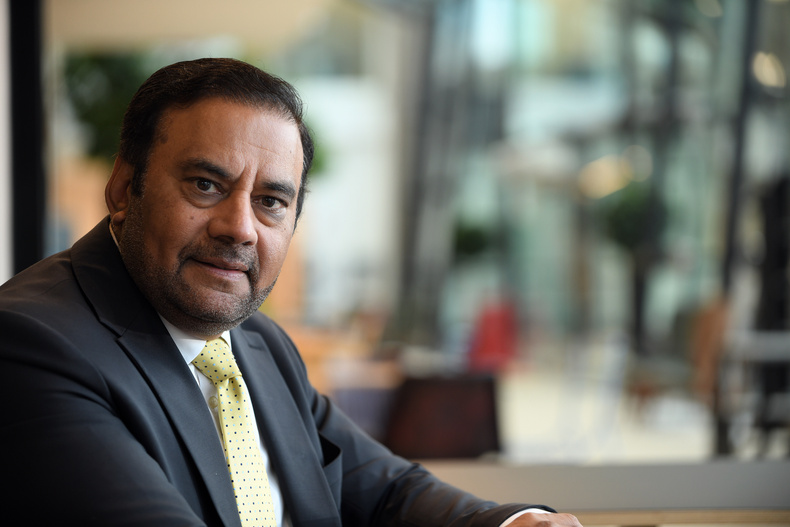Business confidence is fragile – but it’s not all doom and gloom

In my dual role as a business owner and president of the Greater Birmingham Chambers of Commerce, I spend a great deal of time talking to business leaders across our region, writes Nasir Awan.
One thing is clear - the current economic landscape is testing even the most resilient among us.
The latest findings from the British Chambers of Commerce’s Quarterly Economic Survey have laid bare what many of us already know - the pressure is mounting.
Taxes, inflation, and interest rates are squeezing firms and UK business confidence is at its lowest since the fallout from the infamous mini-budget of late 2022.
For example, following the Chancellor’s autumn statement, 63 per cent of UK firms listed taxation as a key concern, up from 48 per cent in the previous quarter.
That’s the highest level of tax anxiety recorded since this data was first collected in 2017.
Unsurprisingly, sectors like production, manufacturing, and construction are feeling the brunt, with tax being cited as a major issue.
Inflation remains a persistent worry, with almost half of businesses (47 per cent) citing it as a concern.
In retail and hospitality - the lifeblood of our local economy - confidence is particularly fragile, with only 39 per cent of retailers and 42 per cent of hospitality businesses expecting their turnover to improve.
These are industries that employ millions of people and contribute massively to our communities. When they struggle, we all feel the impact.
Yet, it’s not all doom and gloom. Businesses are remarkably adaptable and we’ve shown time and again – particularly here in the West Midlands - that we can overcome challenges when the conditions are right.
In contrast to the British Chambers data, the latest Lloyds’ Business Barometer suggests firms in this part of the country are particularly bullish going into the new year – with more West Midlands companies forecasting turnover and profitability growth than they did entering 2024.
Interestingly, there was a strong appetite among the 1,200 firms surveyed by Lloyds to invest in staff training and new technology to support their goals - with a particular focus on automation and AI.
So, while there is understandable trepidation about the wider economic landscape, West Midlands businesses are ready to hit the ground running with their plans and ambitions.
One of the great privileges of being part of the GBCC is to learn about emerging local businesses who are at the cutting edge.
For example, UB Healthcare – the GBCC’s choice for the popular Business Live ‘ones to watch in 2025’ feature – are a fast-growing Solihull start-up driving positive change in the healthcare sector.
They work with the NHS, as well as social care and independent care providers across the country, helping them deliver value-based services that address their challenges.
UB Healthcare’s work is proving transformational in a sector that is notoriously challenging.
Fellow nominees in the Business Live list include companies operating in outdoor dining events, next gen AI and pioneering solutions for waste plastic – further proof that our region’s business scene is both diverse and dynamic.
However, while the future may be bright, we still need to see some urgent action from the Government to hep firms who are struggling now.
High on the list of priorities should be swift action on business rates reform with a system that encourages investment rather than penalising it, accelerating infrastructure investment in a way that benefits SMEs across the supply chain, and a focus on boosting exports.
The latter is a subject I will continue to advocate for passionately in my second year as president, with more Chamber-led trade missions and international activities in the pipeline.
By working closely with the International Trade Centre (ITC) last year, we demonstrated the potential and appetite for trade with emerging and untapped markets.
That’s not to say the UK’s bigger trading partners aren’t of critical importance – and we hope to see the Government foster a more effective trading relationship with the EU.
Many businesses are still navigating the complexities of Brexit, and simplifying trade processes could provide a much-needed lifeline.
Attracting foreign direct investment into the region has also been a pillar of my tenure – but this is something that will be more difficult under current tax regulations.
The Government must do all it can to make the UK attractive to overseas investors.
So, on the one hand it’s encouraging to hear many West Midlands businesses are expecting growth over the year ahead.
Yet, on the other, we can’t ignore the stark challenges that lie ahead.
As a Chamber, we’ll continue to be by the side of our region’s businesses during 2025 to help them navigate those bumps in the road, as well as making the most of new opportunities that arise.
Dr Nasir Awan MBL DL is president of Greater Birmingham Chambers of Commerce and CEO of Awan Marketing International
This column first appeared in the Birmingham Post



